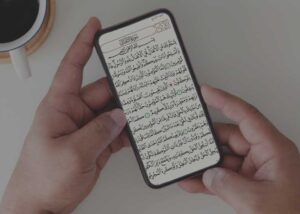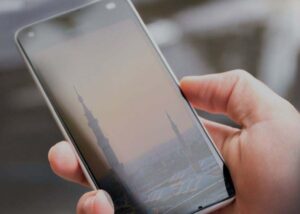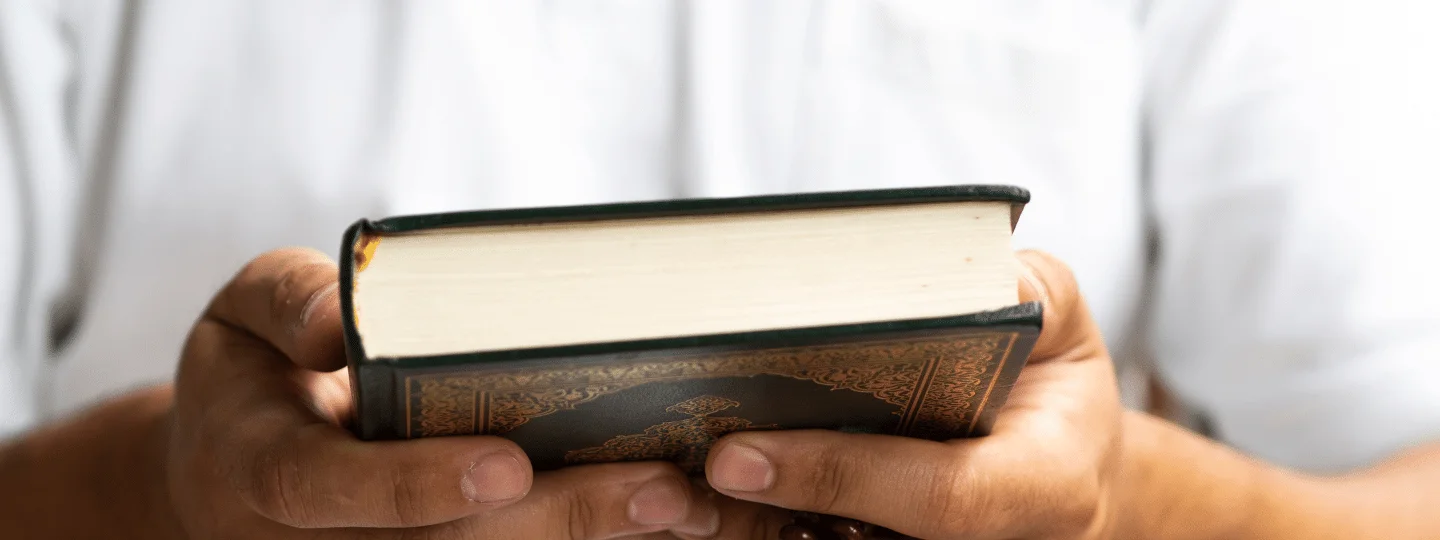Is it permitted to touch a copy of the Holy Quran without Wudu?
Quran
Hadith
Islamic Text
بِسْمِ اللَّهِ الرَّحْمَنِ الرَّحِيمِ
In the Name of Allah Most Merciful Most Kind
Short Answer:
It is not permitted to touch the Quran without Wudu. The proof for this is found in the Holy Quran and Blessed Hadith.
Qur’an and Tafseer:
لا يَمَسُّهُ إِلا الْمُطَهَّرُونَ
None shall touch it, except the purified. (Surah al-Waqi’ah, 79).
There is a difference of opinion regarding the interpretation of the above verse. Many scholars said that it refers to the angels touching al-Lowh al-Mahfoodh (the preserved Tablet). However, other scholars felt that it refers to people not being allowed to touch the Holy Quran unless they are in a state of purity. The Hanafi scholars inclined towards this interpretation.
Imam al-Wahidi narrates this interpretation for the Ayah in his Tafseer. Furthermore, he mentions a number of early scholars who preferred this interpretation.
وقالوا: لا يجوز للمحدث، والحائض، والجنب مس المصحف. وهذا قول محمد بن علي، وعطاء، وطاوس، وسالم، والقاسم، ومذهب مالك، والشافعي. (الوسيط في تفسير القرآن المجيد)
They said it is not permitted for a person in minor ritual impurity (Hadath), a menstruating woman or a person in major ritual impurity (Janabah) to touch a copy of the Quran (Mushaf). This is the opinion of Muhamad bin Ali, Atta, Taawoos, Salim and Qasim. And it is the Madhab of Malik and Shafi. (al-Waseet, Abu al-Hasan al-Wahidi).
وقال عطاء لا يَمَسُّهُ إِلَّا الْمُطَهَّرُونَ قال: لا يقلب الورق من المصحف إلّا المتوضئ
And Ataa said ‘None shall touch it, except the purified.’ (Meaning) only a person in Wudu can turn a page of the Mushaf (copy of Quran). (Tafseer al-Thalabi).
The above Ayah is evidence for the Hanafi position. Namely, one cannot touch the Quran (Mushaf) without Wudu. However, the Ayah is open to interpretation. Therefore, it is not irrefutable proof. More explicit evidence for the prohibition of touching the Quran (Mushaf) without Wudu is found in Hadith.
Hadith:
عَنْ حَكِيمِ بْنِ حِزَامٍ، أَنَّ النَّبِيَّ صَلَّى اللهُ عَلَيْهِ وَسَلَّمَ لَمَّا بَعَثَهُ وَالِيًا إِلَى الْيَمَنِ قَالَ: «لَا تَمَسَّ الْقُرْآنَ إِلَّا وَأَنْتَ طَاهِرٌ» هَذَا حَدِيثٌ صَحِيحُ الْإِسْنَادِ، وَلَمْ يُخَرِّجَاهُ ” التعليق – من تلخيص الذهبي: صحيح
It is narrated from Hakim bin Hizam (may Allah be pleased with him) that when the Prophet ﷺ sent him as a representative to Yemen he said, ‘Do not touch the Quran unless you are in a state of purity.’ (al-Mustadrak, 6051). (Imam Hakim said this Hadith has a Sahih chain, but they (Bukhari and Muslim) did not narrate it. Imam al-Dhahabi (also) said the Hadith is Sahih).
سَالِمًا, يُحَدِّثُ عَنْ أَبِيهِ , قَالَ: قَالَ النَّبِيُّ صَلَّى اللهُ عَلَيْهِ وَسَلَّمَ: لَا يَمَسَّ الْقُرْآنَ إِلَّا طَاهِرًا
Salim narrated from his father that the Prophet ﷺ said, ‘None except the pure can touch the Quran.’ (Sunan Darul Qutni, 437).
Imam al-Ayni mentioned that the chain to this Hadith is Sahih.
مَا رَوَاهُ الدَّارَقُطْنِيّ أَيْضا بِسَنَد صَحِيح من حَدِيث سَالم يحدث عَن أَبِيه قَالَ رَسُول الله صلى الله عَلَيْهِ وَسلم: (لَا يمس الْقُرْآن إلاَّ طَاهِر)
And Dar al-Qutni narrated with a Sahih chain from Salim narrating from his father that the Prophet ﷺ said, ‘None except the pure can touch the Quran.’ (Umdatul Qari).
Imam Dar al-Qutni has a number of narrations with varying chains of the same Hadith:
عَنْ أَبِي بَكْرِ بْنِ مُحَمَّدِ بْنِ عَمْرِو بْنِ حَزْمٍ, عَنْ أَبِيهِ , عَنْ جَدِّهِ , أَنَّ رَسُولَ اللَّهِ صَلَّى اللهُ عَلَيْهِ وَسَلَّمَ كَتَبَ إِلَى أَهْلِ الْيَمَنِ كِتَابًا فَكَانَ فِيهِ: لَا يَمَسَّ الْقُرْآنَ إِلَّا طَاهِرٌ
Abu Bakr bin Muhammad bin Amr bin Hazm narrated from his father, from his grandfather, that the Messenger of Allah ﷺ wrote a letter to the people of Yemen and in it was, ‘And none except the pure can touch the Quran.’ (Sunan Darul Qutni, 439).
Conclusion:
Not only are these Hadith narrations evidence in themselves but they also support the Tafseer of the Ayah mentioned above. Therefore, evidence for the prohibition of touching the Quran without Wudu is found in Quran and authentic Sunnah. However, there is a different ruling regarding reciting something else such as durood using a mobile phone or the like.
Additionally, there are many other Hadith narrations that convey the same meaning, yet the wording varies slightly. Such narrations further strengthen the authenticity of these narrations.
عَنْ سُلَيْمَانَ بْنِ مُوسَى، قَالَ: سَمِعْتُ سَالِمَ بْنَ عَبْدِ اللهِ بْنِ عُمَرَ يُحَدِّثُ عَنْ أَبِيهِ أَنَّ رَسُولَ اللهِ صَلَّى اللهُ عَلَيْهِ وَسَلَّمَ قَالَ: لَا يَمَسُّ الْقُرْآنَ إِلَّا طَاهِرٌ
Sulaiman bin Musa said he heard Salim bin Abdullah bin Umar narrate from his father that the Prophet ﷺ said, ‘None except the pure can touch the Quran.’ (Tabarani al-Mo’jam al-Kabeer, 13217).
عَنْ عَبْدِ اللَّهِ بْنِ عُمَرَ أَنَّ رَسُولَ اللَّهِ صَلَّى اللَّهُ عَلَيْهِ وَسَلَّمَ قَالَ: ” لَا يَمَسَّ الْقُرْآنَ إِلَّا طَاهِرٌ “. رَوَاهُ الطَّبَرَانِيُّ فِي الْكَبِيرِ وَالصَّغِيرِ، وَرِجَالُهُ مُوَثَّقُونَ
Narrated from Abdullah bin Umar that the Messenger of Allah ﷺ said ‘None except the pure can touch the Quran.’ al-Tabarani narrated it in his al-Sagheer and al-Kabeer, and the narrators are sound. (Majma’ al-Zawaaid, 1512).
And Allah Most High Knows best.
– Answered by Shaykh Noor ud-deen (04.01.2021)
See also (video):






